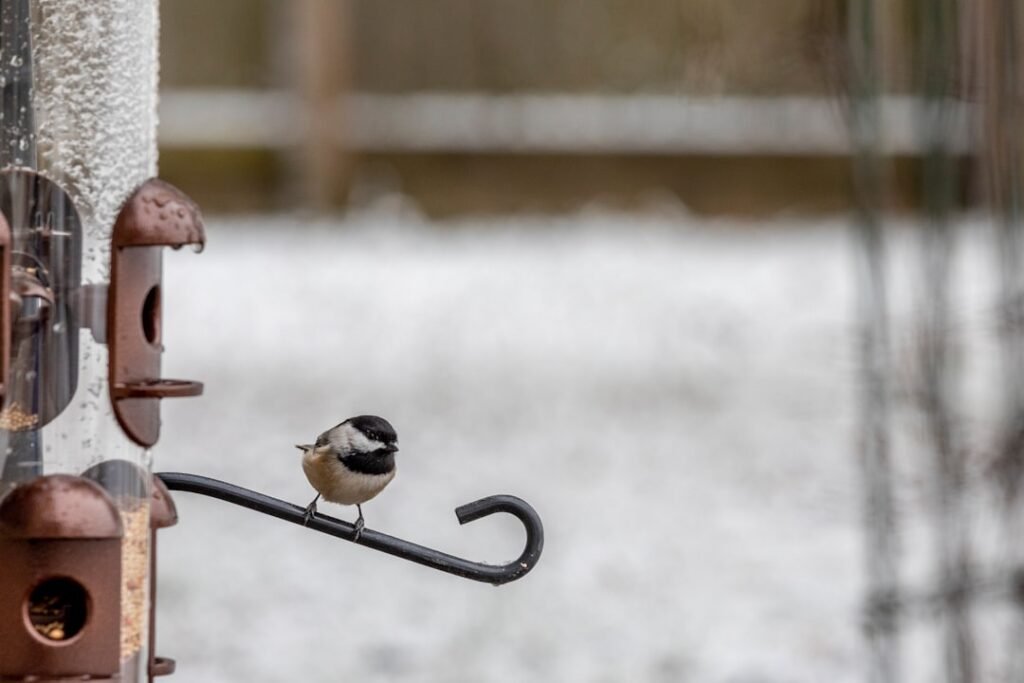Diamond doves (Geopelia cuneata) are small members of the dove family native to Australia and parts of Indonesia. Their name derives from the distinctive white spots on their wings resembling diamonds. These birds are characterized by their soft cooing vocalizations and attractive plumage, which features shades of blue, gray, and white.
Popular as pets due to their gentle temperament and aesthetic appeal, diamond doves are often kept in aviaries or as indoor companions. Their calm demeanor and relatively low maintenance requirements make them suitable for both experienced and novice bird owners. Diamond doves adapt well to various environments, contributing to their popularity among bird enthusiasts.
These birds typically measure between 19-21 cm in length and weigh approximately 22-40 grams. In the wild, they inhabit arid and semi-arid regions, including grasslands, woodlands, and scrublands. Diamond doves primarily feed on seeds and grains, supplementing their diet with small insects and vegetation.
As pets, diamond doves require a balanced diet, clean water, appropriate housing, and regular veterinary care. Their docile nature and small size make them suitable for indoor environments, provided they have adequate space for exercise and enrichment activities.
Key Takeaways
- Diamond doves are small, colorful doves native to Australia and are popular as pets due to their gentle nature and beautiful appearance.
- They are found in a variety of habitats including grasslands, scrublands, and open woodlands across Australia and parts of Indonesia.
- Diamond doves are known for their small size, with a length of about 8 inches and a weight of around 1 ounce, and their distinctive blue-grey plumage with white spots on their wings.
- These doves are known for their monogamous mating behavior and form strong pair bonds, often staying together for life.
- In the wild, diamond doves primarily feed on a diet of seeds, grains, and insects, and in captivity, they can be fed a mixture of seeds, greens, and commercial dove food.
Habitat and Distribution of Diamond Doves
Habitat and Distribution
These doves are well adapted to arid environments and can often be found near water sources such as rivers, streams, and waterholes. They are also known to inhabit agricultural areas and urban environments, where they can often be seen foraging for food in open spaces.
Behavior and Social Structure
In the wild, diamond doves are known to form small flocks, often consisting of pairs or small family groups. They are ground-dwelling birds and can often be seen foraging for seeds and insects on the ground.
Physical Characteristics and Flight Pattern
Their small size and cryptic coloration help them blend into their natural surroundings, making them difficult to spot in the wild. Diamond doves are also known for their distinctive flight pattern, which includes rapid wingbeats followed by a glide. They are agile flyers and can often be seen darting through the air in pursuit of prey or to escape potential predators.
Physical Characteristics of Diamond Doves

Diamond doves are small birds, measuring around 7 inches in length from beak to tail. They have a delicate appearance, with slender bodies and small heads. Their plumage is predominantly gray, with a distinctive white patch on each wing that resembles a diamond, giving them their name.
They also have striking red eye-rings and bright orange eyes, which add to their overall beauty. Their tails are long and tapered, and they have short, rounded wings that enable them to maneuver quickly through the air. In addition to their striking appearance, diamond doves are known for their soft cooing calls, which they use to communicate with each other.
These gentle sounds are a hallmark of these birds and add to their charm as pets. Diamond doves also have a unique courtship display, which involves the male puffing up his chest and bobbing his head while cooing to attract a mate. This display is a beautiful sight to behold and is often performed during the breeding season.
Behavior and Social Structure of Diamond Doves
| Behavior and Social Structure of Diamond Doves | |
|---|---|
| Species | Geopelia cuneata |
| Habitat | Arid and semi-arid regions of Australia |
| Behavior | Ground-dwelling, forage for seeds and grains |
| Social Structure | Form monogamous pairs, often seen in small flocks |
| Reproduction | Builds simple nests on the ground, lays 2 eggs |
Diamond doves are social birds that form strong pair bonds with their mates. In the wild, they are often seen in pairs or small family groups, and they are known to be monogamous, remaining with the same mate for life. They are also known for their gentle and peaceful nature, rarely engaging in aggressive behavior towards each other or other birds.
These doves are ground-dwelling birds and spend much of their time foraging for food on the ground, using their sharp eyesight to locate seeds and insects. In addition to their gentle nature, diamond doves are also known for their agility and speed in flight. They are adept flyers and can often be seen darting through the air with rapid wingbeats followed by gliding.
This flight pattern helps them evade potential predators and allows them to cover large distances in search of food and water. Diamond doves are also known for their strong homing instincts and can find their way back to their nests even after being released at a considerable distance.
Diet and Feeding Habits of Diamond Doves
Diamond doves are primarily granivorous, meaning they primarily feed on seeds. In the wild, they forage for a variety of grass seeds, including those from native grasses and agricultural crops. They also consume small insects such as ants, beetles, and termites, which provide them with essential protein and nutrients.
In captivity, diamond doves can be fed a diet of high-quality seed mix supplemented with fresh fruits and vegetables. It is important to provide them with a varied diet to ensure they receive all the essential nutrients they need to thrive. In addition to seeds and insects, diamond doves also require access to clean water at all times.
They will drink regularly throughout the day and should be provided with a shallow dish of water that is easy for them to access. It is important to ensure that the water is changed regularly to prevent the growth of harmful bacteria or algae. Providing fresh water is essential for the health and well-being of diamond doves, as dehydration can quickly become a serious issue for these birds.
Breeding and Reproduction of Diamond Doves

Courtship and Mating
During the breeding season, which typically occurs in the spring and summer months, males will perform elaborate courtship displays to attract a mate. This display involves puffing up the chest, bobbing the head, and cooing softly to the female.
Nesting and Incubation
Once a pair has formed, they will work together to build a nest, which is typically a small platform made of twigs and grasses. The female will lay one or two eggs, which she will incubate for around 13-14 days before they hatch. Both parents will take turns incubating the eggs and caring for the chicks once they hatch.
Raising the Chicks
The chicks will fledge after around 12-14 days and will become independent shortly after leaving the nest. Diamond doves reach sexual maturity at around 6 months of age and can begin breeding shortly after reaching maturity.
Caring for Diamond Doves as Pets
Diamond doves make wonderful pets for bird enthusiasts looking for a gentle and low-maintenance companion. They are relatively easy to care for and can thrive in a variety of environments, making them an ideal choice for both experienced and novice bird owners. When keeping diamond doves as pets, it is important to provide them with a spacious cage that allows them plenty of room to move around and stretch their wings.
The cage should also be equipped with perches, toys, and nesting materials to keep them entertained and engaged. In addition to providing a suitable cage, it is important to provide diamond doves with a balanced diet that includes high-quality seed mix supplemented with fresh fruits and vegetables. It is also important to provide them with access to clean water at all times.
Regular veterinary check-ups are also essential to ensure the health and well-being of pet diamond doves. With proper care and attention, diamond doves can live up to 15 years in captivity, providing years of companionship and joy for their owners. In conclusion, diamond doves are beautiful birds known for their gentle nature, striking appearance, and soft cooing calls.
They are native to Australia and Indonesia and can be found in a variety of open habitats. These birds form strong pair bonds with their mates and are known for their monogamous nature. They primarily feed on seeds and insects in the wild and require access to clean water at all times.
When kept as pets, diamond doves require a spacious cage, a balanced diet, regular veterinary check-ups, and plenty of love and attention from their owners. With proper care, diamond doves can make wonderful companions for bird enthusiasts looking for a peaceful and low-maintenance pet.
FAQs
What are diamond doves?
Diamond doves are small, colorful birds native to Australia and surrounding regions. They are a popular choice for aviculture due to their gentle nature and beautiful appearance.
What do diamond doves look like?
Diamond doves are small birds, measuring about 7 inches in length. They have a grayish-blue body with white spots on their wings, giving them a diamond-like pattern. They also have red eye rings and bright orange eyes.
What do diamond doves eat?
In the wild, diamond doves primarily feed on a variety of seeds, grains, and grasses. In captivity, they can be fed a diet of commercial bird seed mix, supplemented with fresh fruits and vegetables.
How long do diamond doves live?
Diamond doves have an average lifespan of 10-15 years in captivity when provided with proper care and a suitable environment.
Are diamond doves good pets?
Diamond doves are known for their gentle and peaceful nature, making them popular pets for bird enthusiasts. They are relatively easy to care for and can be kept in a spacious aviary or a large cage.
Do diamond doves need a mate?
Diamond doves are social birds and do well when kept in pairs or small groups. They form strong bonds with their mates and will often display affectionate behaviors towards each other.
Are diamond doves noisy?
Diamond doves are relatively quiet birds compared to other dove species. They produce soft cooing sounds and are not known for being excessively noisy.
Do diamond doves require special care?
Diamond doves require a clean and spacious living environment, a balanced diet, and regular access to fresh water. They also benefit from regular social interaction and mental stimulation.


